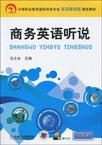商务英语听说
出版时间:2010-1 出版社:机械工业出版社 作者:马文冰 主编 页数:182
前言
听力和口语在职业学校的外语教学中一般被当作技能训练来处理。教师更多地把时间放在了阅读和写作的教学上。学生在英语学习中也是重读写、轻听说。这种思想实际上忽略了听力在四项技能中的重要作用。 英语是表音文字,与表意文字,如中文,有很大的差别。如果说中文是用眼睛来学的,那么英语就应该用耳朵来学。现代英语教育理论认为,人的头脑对语音的记忆能力和识别能力往往大于对文字的认读能力。储存在头脑中的语音信息,写出来就是文章,说出来就是口语。识读的文字与头脑中的语音相匹配,则能理解所读的词句及文章,反之,则会出现阅读困难。 听英语的过程大概都是从识别单词开始的,再由单词扩展到词组和句子。本书的编写就遵循着这个规律:首先,将生词或重点词放在句子中,让学生辨音;接下来,让学生在熟练识别单词的基础上识别句子;最后,把重点句子放在文章中,让学生在正常语速的信息流中,辨别所列出的句子。如果单词是点,句子是线,那么接下来的就是面,即对整个篇章的理解。这样一来,从点到线再到面,逐步突破听力难关。学生的进步也在这个过程中从点到面地展开。由于我们的任务布置得清晰、明确,而且任务量不大,同学时刻可以感受到自己的进步,很有成就感。 听的目的不仅是为了应付考试,而且是为了完成工作任务,进行功能交际。口语的训练一方面要强调对语言的记忆能力,另一方面要强调将一些记住的资料重复出来,在不断的模仿练习中培养说英语的能力和兴趣。我们认为,英语的听和说是一个硬币的两面,听是输入,说是产出,二者相互联系、密不可分。现代英语教学强调的是交际教学法,更加注重对听说能力的培养。
内容概要
现代英语教学强调的是交际教学法,更加注重对学生听、说能力的培养。本书基于先进的英语教学理论,从学生就业和发展的需要出发,把听与说融合在一起。从教学实践和学生掌握情况来看,这种思路是卓有成效的。 本书分为日常用语、商务流程、相关行业用语三个模块。日常用语模块从找工作开始到办公室英语,进入工作状态后,分别介绍了接机、安排日程、宴请、观光和送别等内容。商务流程模块包括产品介绍、报盘和发盘、定价、支付方式、包装、保险、运输和合同等内容。相关行业用语模块包括会议、会展及营销英语等内容。 本书可作为国际商务专业和商务英语专业的教材,也可作为相关人员的参考用书。
书籍目录
前言Module1 Everyday English Unit 1 Finding a Job Part A Words and Expressions Part B Sample Talk Part C After-class Practice Part D Listening Practice Part E Extra Exercises Part F Unit2 Office English Part A Words and Expressions Part B Sample Talk Part C After-class Practice Part D Listening Practice Part E Extra Exercises Part F Unit3 Picking up the Customer at the Airport Part A Words and Expressions Part B Sample Talk Part C After-class Practice Part D Listening Practice Part E Extra Exercises Part F Unit4 Making an Agenda Part A Words and Expressions Part B Sample Talk Part C After-class Practice Part D Listening Practice Part E Extra Exercises Part F Unit5 At a Dinner Party Part A Words and Expressions Part B Sample Talk Part C After-class Practice Part D Listening and Practice Part E Extra Exercises Part F Unit6 Touring with the Customer Part A Words and Expressions Part B Sample Talk Part C After-class Practice Part D Listening Practice Part E Extra Exercises Part F Unit7 Seeing off Warmly Part A Words and Expressions Part B Sample Talk Part C After-class Practice Part D Listening Practice Part E Extra Exercises Part FModule2 Business Procedures Unit8 Product Presentation Part A Words and Expressions Part B Sample Talk Part C After-class Practice Part D Listening Practice Part E Extra Exercises Part F Unit 9 Inquiry and Offer Part A Words and Expressions Part B Sample Talk Part C After-class Practice Part D Listening Practice Part E Extra Exercises Part F Unit 10 Price Part A Words and Expressions Part B Sample Talk Part C After-class Practice Part D Listening Practice Part E Extra Exercises Part F Unit 11 Terms of Payment Part A Words and Expressions Part B Sample Talk Part C After-class Practice Part D Listening Practice Part E Extra Exercises Part F Unit 12 Packing Part A Words and Expressions Part B Sample Talk Part C After-class practice Part D Listening Practice Part E Extra Exercises Part F Unit 13 Insurance Part A Words and Expressions.. Part B Sample Talk Part C After-class Practice Part D Listening Practice Part E Extra Exercises Part F Unit 14 Shipping Part A Words and Expressions Part B Sample Talk Part C After-class practice Part D Listening Practice Part E Extra Exercises Part F Unit 15 Signing a Contract Part A Words and Expressions Part B Sample Talk Part C After-class Practice Part D Listening Practice Part E Extra Exercises Part FModule 3 English in the Relative Fields Unit 16 AtaMeeting 1 Part A Words and Expressions Part B Sample Talk Part C After-class Practice Part D Listening Practice Part E Extra Exercises Part F Unit 17 Marketing andPromotion Part A Words and Expressions Part B Sample Talk Part C After-class Practice Part D Listening Practice Part E Extra Exercises Part F Unit 18 Signing up fora Trade Show Part A Words and Expressions Part B Sample Talk Part C After-class Practice Part D Listening Practice Part E Extra Exercises Part F
章节摘录
One of Chinas greatest treasures is her long, rich history. As early as 1.7 million years ago, the earliest humans evolved on this land. The first dynasty, the Xia Dynasty, dates to about the 21st century BC. For 4,000 years, feudalism was the dominant economic and cultural model. Then, in 1911, the revolution led by Sun Yatsen brought the monarchy to an end. On October 1st, 1949, modern China was founded as the Peoples Republic of China. Since then, China has developed independently and vigorously. Most recently, reform and opening-up policy has energized life in China. China is proud of her many people, long history, resplendent culture and distinctive customs. Among her greatest gifts to the world are the four great inventions (paper, gunpowder, printing and the compass). Chinese arts and crafts, including painting, calligraphy, operas, embroidery and silk, are distinctive and unique. Martial arts, which have only recently begun to enjoy popularity in other parts of the world, have been part of Chinese culture for centuries, and Chinese literature testifies to the countrys rich heritage. And, of course, there is Chinese cuisine, which has been exported to every corner of the globe.
图书封面
评论、评分、阅读与下载
用户评论 (总计0条)
推荐图书
- 塑料模具设计指导
- 如何进行税收筹划
- 瑞普·凡·温克尔:英文
- 三点一测-七年级-英语下-(外研版)(衔接小学)(升级版)
- 三点一测丛书 - - -八年级生物下
- 不談愛情
- 三国志
- 沙漠动物
- 闪点行动-特种部队简体中文版)
- 商务英语口语每日一段
- 蔡琴 - - 难忘的琴声DSD
- 蔡依林演唱会影音全纪录
- 羊毛毡狗狗爱装cute
- 草根美容教主护肤经(新)
- 草药生活
- 社会学教程 第二版
- 申论真题分类强化训练与解析2010年新版
- 畅通无阻学Excel财务管理
- 畅通无阻学电脑故障排除
- 神笔
- 超越-小学生每日10分钟阅读5年级
- 陈式太极拳 五十六式 9
- 成功单元计划-一年级-语文下(人教版)
- 成功单元计划六年级语文下,人教实验版
- 新孽海花
